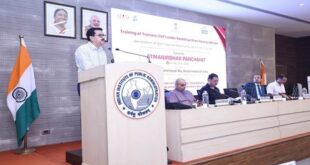- Recently, the Government has notified new rules under the Medical Termination of Pregnancy (Amendment) Act, 2021.
- The 2021 Act was passed to amend the Medical Termination of Pregnancy (MTP) Act, 1971.
Important points:
The gestational limit for termination of a pregnancy has been increased from 20 to 24 weeks for certain categories of women.
The seven specific categories are:
- Survivors of sexual assault or rape or incest.
- Change of marital status during the ongoing pregnancy (widowhood and divorce).
- Women with physical disabilities.
- Mentally ill women.
- Foetal malformation that has a substantial risk of being incompatible with life or if the child is born, he/ she may suffer from serious physical or mental abnormalities.
- Women with pregnancy in humanitarian settings or disaster or emergency situations.
Significance
- The new rules will contribute towards ending preventable maternal mortality to help meet the Sustainable Development Goals (SDGs) 3.1, 3.7 and 5.6.
- SDG 3.1 pertains to reducing maternal mortality ratio whereas SDGs 3.7 and 5.6 pertain to universal access to sexual and reproductive health and rights.
- The new rules will increase the ambit and access of women to safe abortion services and will ensure dignity, autonomy, confidentiality and justice for women who need to terminate pregnancy.
Issues
- Although the new rules have increased access to abortions to some extent, they fail to correct a fundamental flaw in the MTP Act that a woman does not have the basic right to terminate a pregnancy if and when she decides.
- The formation of a state medical board raises additional concerns around their access, particularly to women from rural areas.
- The Act requires abortion to be performed only by doctors with specialisation in gynaecology or obstetrics.
- As there is a 75% shortage of such doctors in community health centres in rural areas, pregnant women may continue to find it difficult to access facilities for safe abortions.
- The society is still unable to ensure reproductive autonomy to the women, many of whom not only lack the freedom to plan pregnancies but also face multiple barriers when they seek abortions.
SOURCE: THE HINDU,THE ECONOMIC TIMES,MINT
 Chinmaya IAS Academy – Current Affairs Chinmaya IAS Academy – Current Affairs
Chinmaya IAS Academy – Current Affairs Chinmaya IAS Academy – Current Affairs



